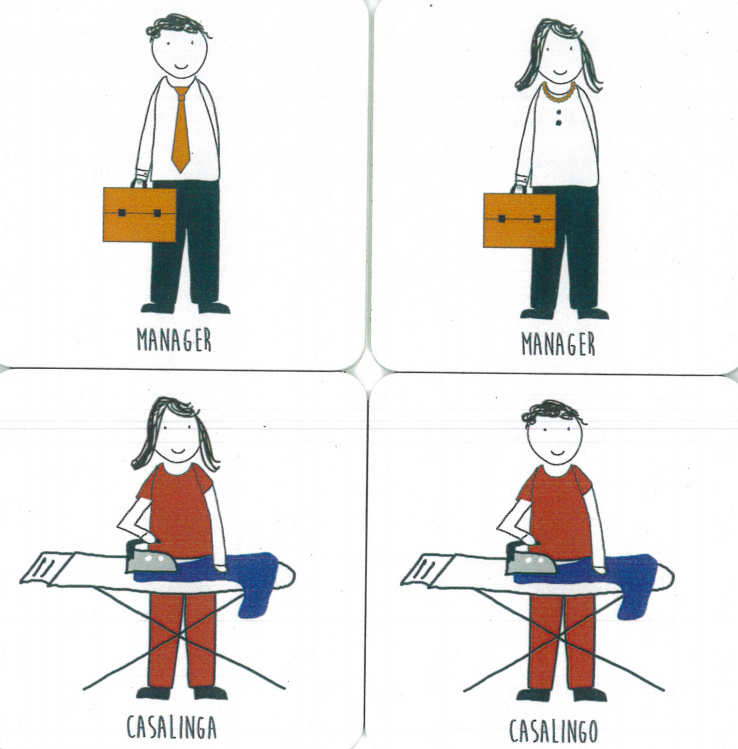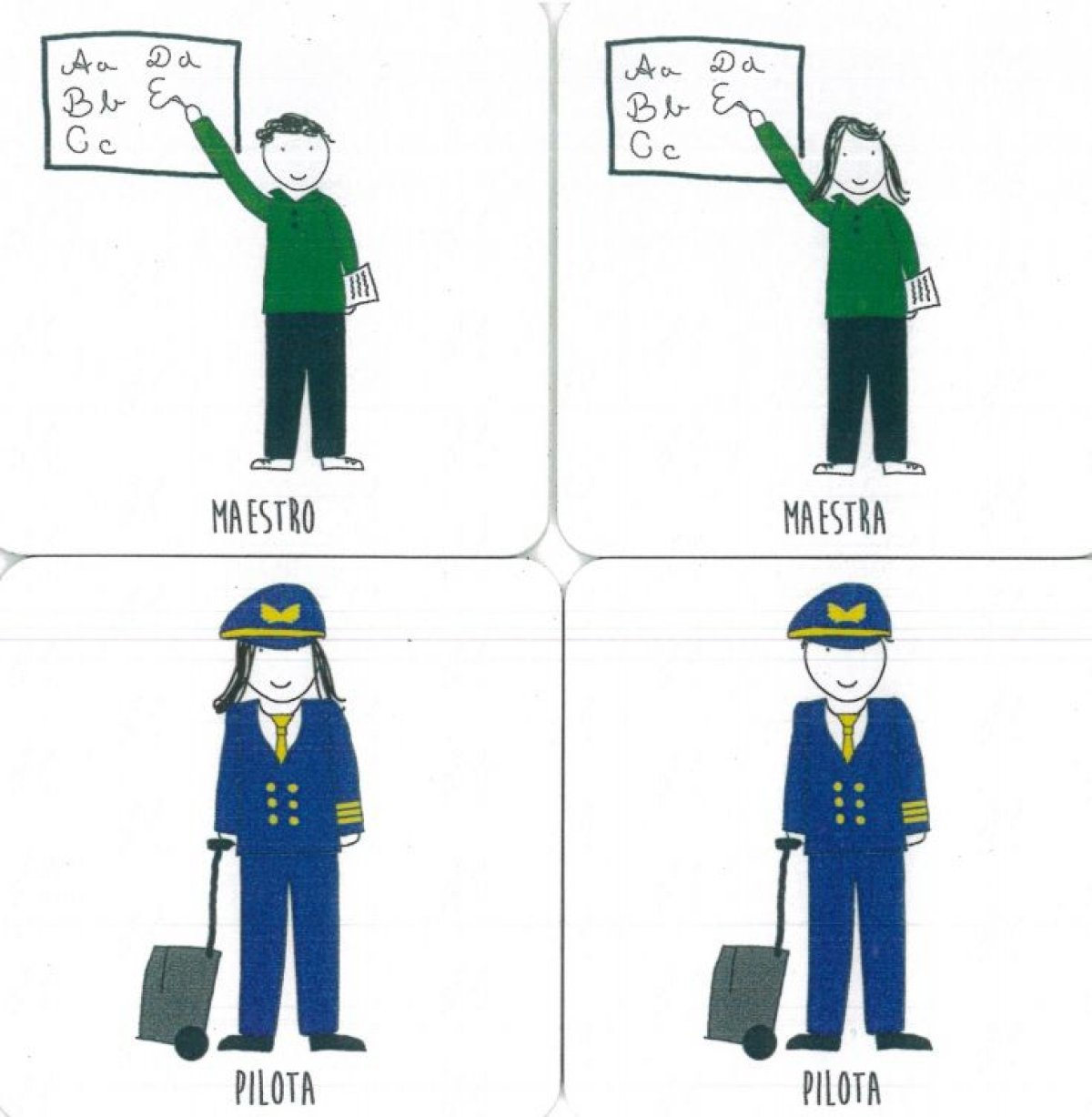
A new programme for schoolchildren designed to address gender inequality in Italy has been met with strong opposition from politicians within Silvio Berlusconi's Forza Italia party and the right-wing Northern League.
Game of Respect is intended to challenge the perception of gender through play among young children aged three to six. One of its features is a traditional memory game of matching cards, which illustrate men and women in roles which are supposed to challenge gender stereotypes, such as female firefighters and builders and males teaching and doing the ironing.
The idea was conceived in 2013 by psychologist and PhD researcher Lucia Beltramini, teacher Daniela Paci and creative director and blogger Benedetta Gargiulo. It's been proposed that the programme will be rolled out across the northern region of Trieste, where 18 schools are already interested in implementing it following demonstrations at training days in December which were attended by 68 teachers, according to Antonella Grim, town councillor for education, schools, university and research from Trieste city.
Gargiulo says they started the project to address the huge gap between men and women, which they believe is one of the biggest social and cultural issues in Italy.
"Italian women are at the bottom of the ranking in the gender gap worldwide, earning on average 20% less than men in the same position, facing mobbing and being forced to leave their jobs after they come back from their maternity leave, having a huge rate of domestic violence and murders," she says.

"With this project we were trying to address the issue and try to change the environment at an early age, fighting the stereotypes that are still deeply rooted in our Italian culture. After all, we are a country with a macho culture."
Italy has one of the lowest rankings for gender equality within the EU according to the European Gender Equality Index. A 2014 report into gender equality in the country by the European parliament's directorate-general for internal policies concluded it is "still far from reaching satisfactory results, in spite of relevant progress under the pressure of women's movements, civil society and European legislation".
However, Sandra Savino, regional coordinator of Forza Italia, says she disagrees with the game for two reasons.
"The first is that the majority of families weren't informed about this educational project," she says. "The second is that the children involved are too young [to understand] this theme. In fact, in this regard, I presented an official query to the Italian parliament."
She says she disputes the game has a pedagogical function and argues the topics are better dealt with in a family environment. She also disagrees with the manner in which the game features women wearing clothes that are traditionally associated with men and visa versa.
Barbara Zilli, a politician for the Northern League party, said in a statement that the game is likely to create confusion regarding the sexual identity of children and that it is an underhand attempt to manipulate the psyche of young people with "deliberately ambiguous" messages.
"It is legitimate and understandable that schools be taught not to discriminate against gays and other minorities, but this does not necessarily entail the imposition of a model of society that provides for the elimination of the natural differences between the sexes," she said.
Gargiulo says she is surprised at the strong opposition shown by some representatives of the Catholic church, conservative parties and the media, arguing it is based on "false information and malicious interpretations" as none of these groups took the time to talk to educators or ask for an explanation of the how the game works.
"It seemed like a trigger for an explosion of some of the worst stereotypes that Italian culture has been bearing for a long time: girls are girls, boys are boys, don't mix this two things together, labelling the word 'gender' as some horrifying alien that will change the destiny of the traditional family," she says.
"What I would tell these people is to speak first to the teachers who went through the training process for the implementation of this game, to the parents it was presented to and finally to come and play with the game themselves, in order to evaluate if it is really as harmful as they depicted it."
She adds that the controversy surrounding the game highlights the urgent need to address this issue in Italy and that "probably, the adults need it more than the kids."
Trieste's deputy mayor, Fabiana Martini, echoes Gargiulo's sentiments, saying she feels the negative response from some political parties only serves to greater demonstrate the need to play Game of Respect.
"The gender gap is one of the major problems of our country and it's not a women problem, but a society problem, connected with development of the whole society," she says. "To overcome it we must remove the structural causes; there is still much work to be done."
Uncommon Knowledge
Newsweek is committed to challenging conventional wisdom and finding connections in the search for common ground.
Newsweek is committed to challenging conventional wisdom and finding connections in the search for common ground.
About the writer
To read how Newsweek uses AI as a newsroom tool, Click here.








